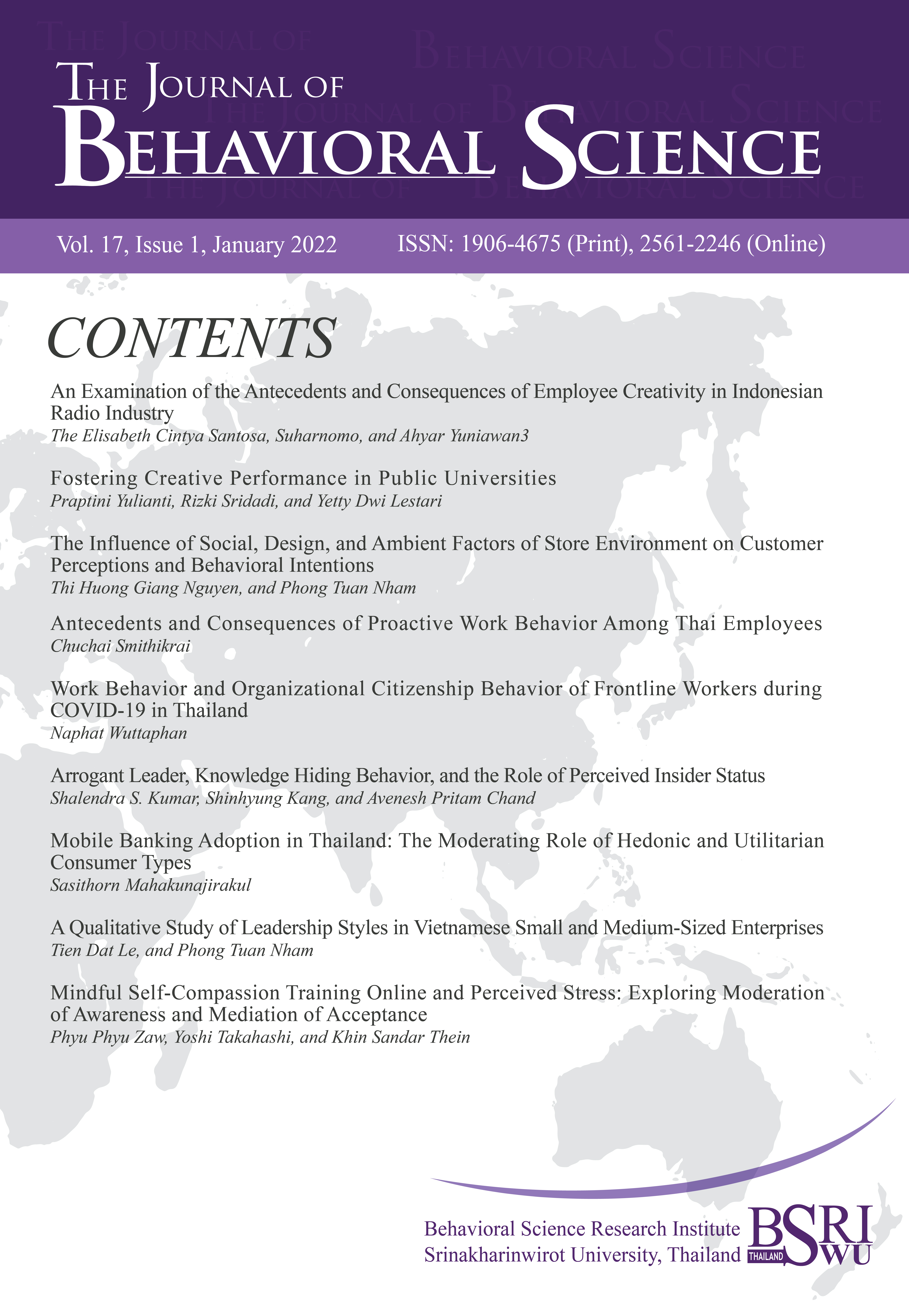Mindful Self-Compassion Training Online and Perceived Stress: Exploring Moderation of Awareness and Mediation of Acceptance
Main Article Content
Abstract
Mindful self-compassion (MSC) training is considered an effective method for reducing stress. This study aims to analyze whether MSC training influences perceived stress and investigates the roles of awareness and acceptance in the relationship between training and perceived stress as a moderator and a mediator, respectively. The research framework is based on the monitoring and acceptance theory and the emotion regulation theory. This study used a randomized controlled trial, where 25 voluntary participants from the alumni of the Ship for South-East Asian Youth Program in Myanmar were randomly assigned to a treatment or a waitlist control group. To examine the relationships, we used t-tests and moderated mediation analyses. The results showed that training had a positive effect on acceptance (t = -3.32, p = .00) and a negative effect on perceived stress (t = 3.57, p =.00), although it did not affect awareness significantly (t = .37, p = .77). It was also found that acceptance has a statistically significant full mediation on the relationship between training and perceived stress, with a negative indirect effect (a*b = -.26, Bootstrap CI95 = -.54 and -.02). Notably, awareness did not moderate the relationship between acceptance and perceived stress (b = -.31, t = -1.91, p > .05). The findings contribute to the literature from the perspectives of psychology and adult learning as it uses an experimental research design to investigate the underlying mechanism of the effect of MSC online training on perceived stress, critical in influencing a variety of behaviors.
Downloads
Article Details

This work is licensed under a Creative Commons Attribution-NonCommercial-NoDerivatives 4.0 International License.


